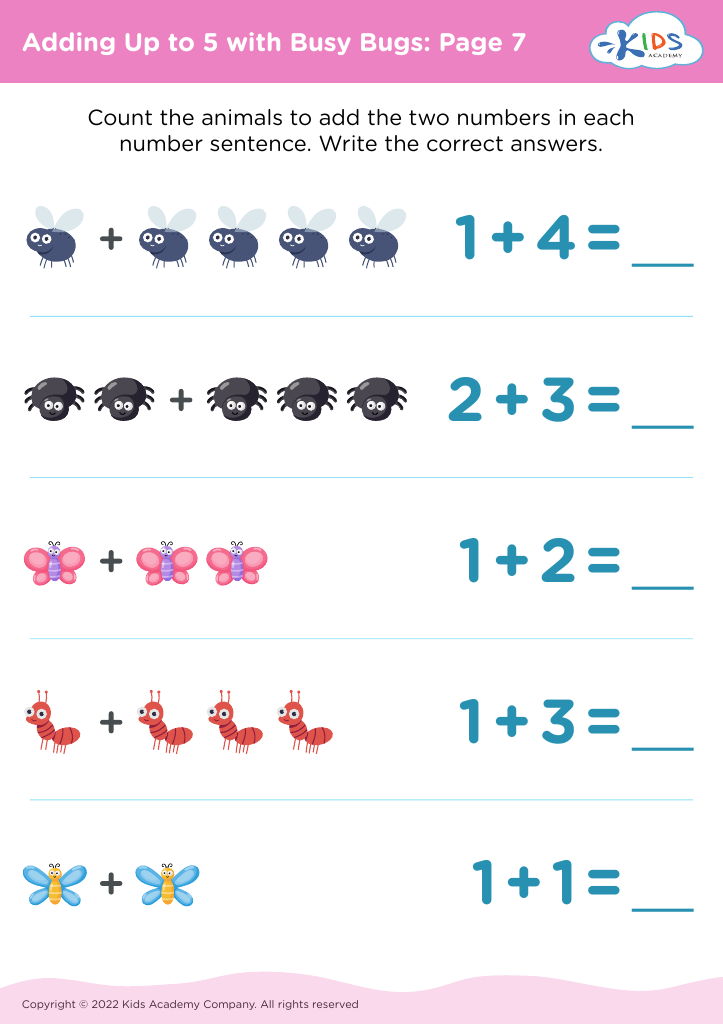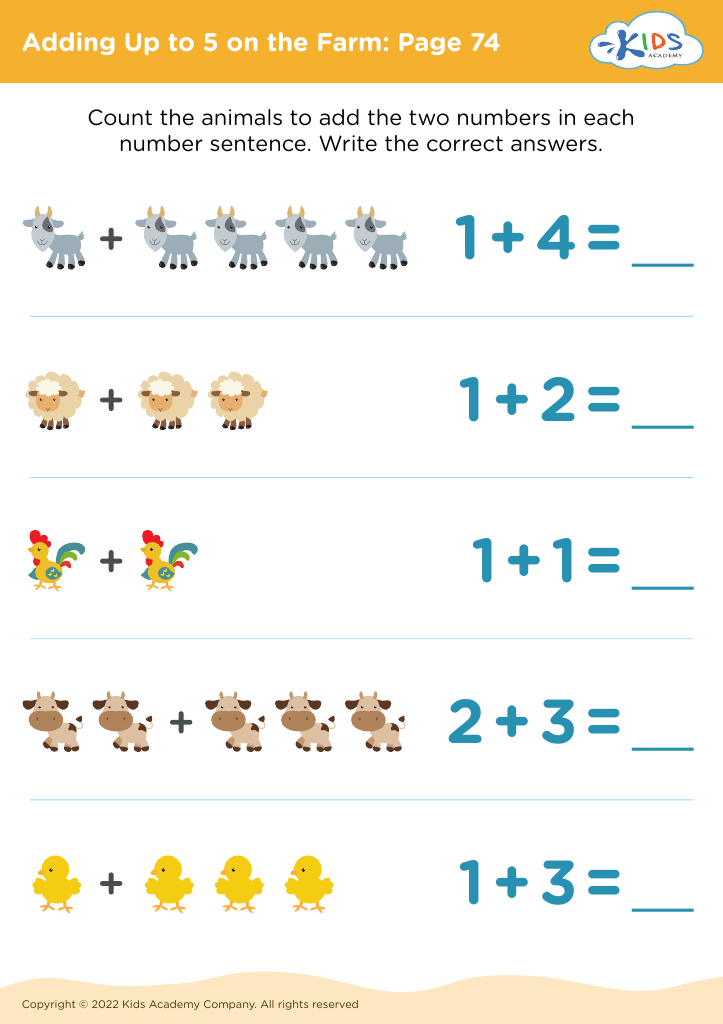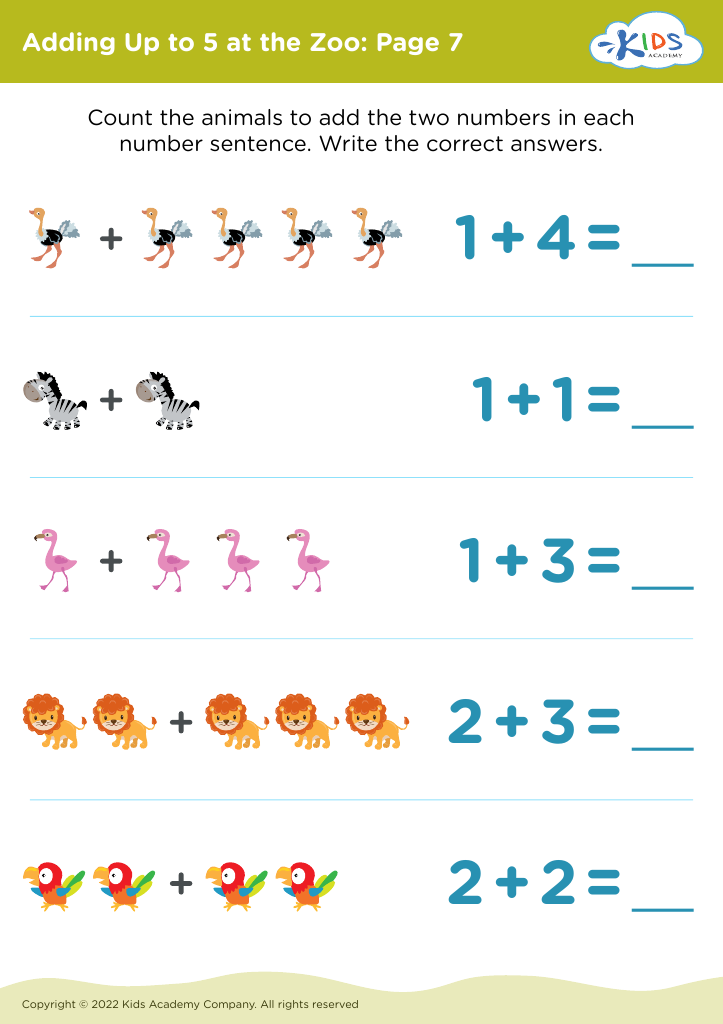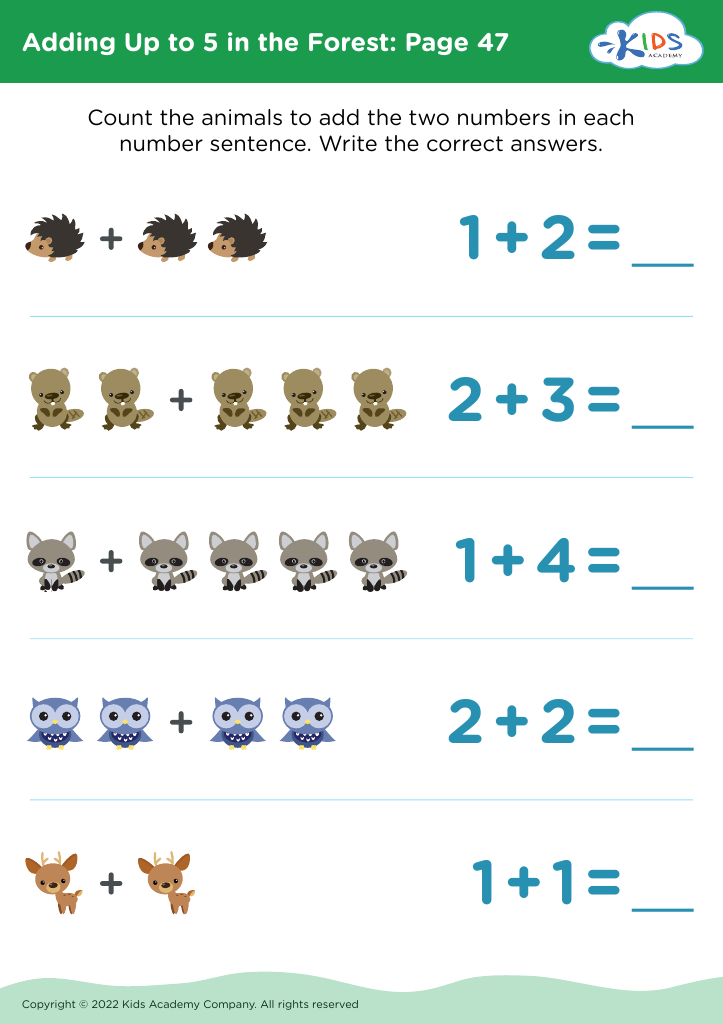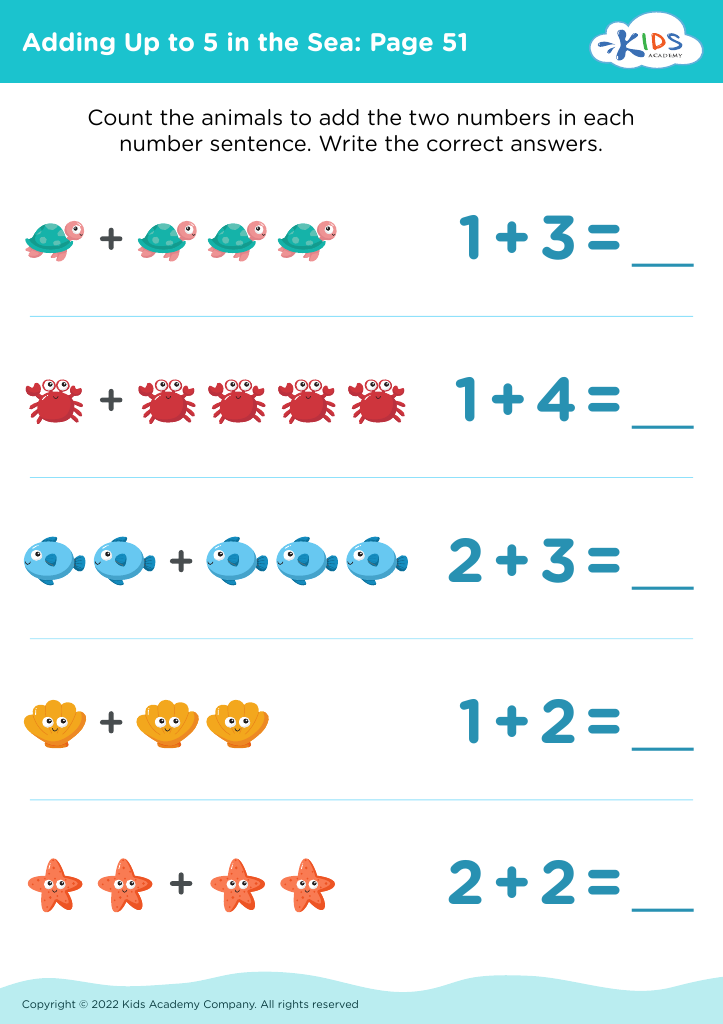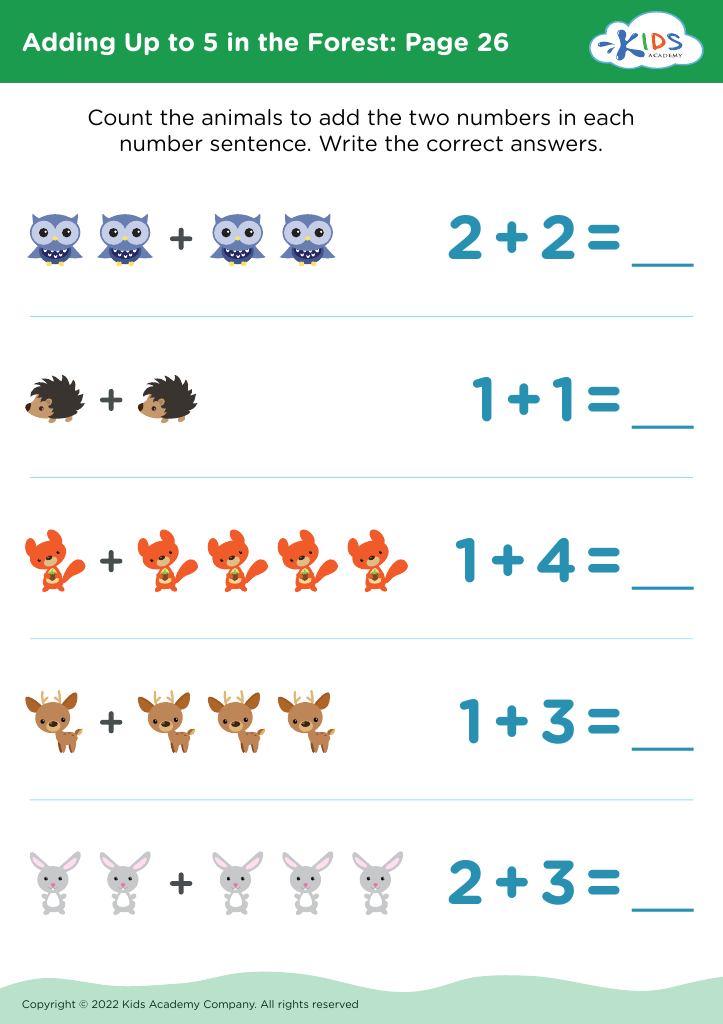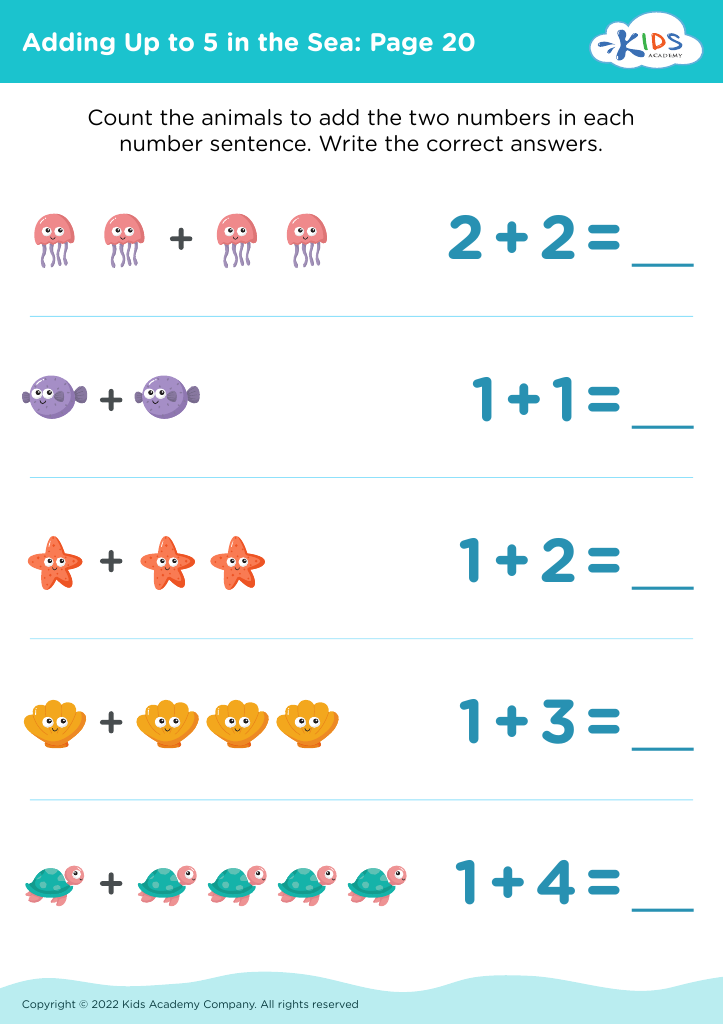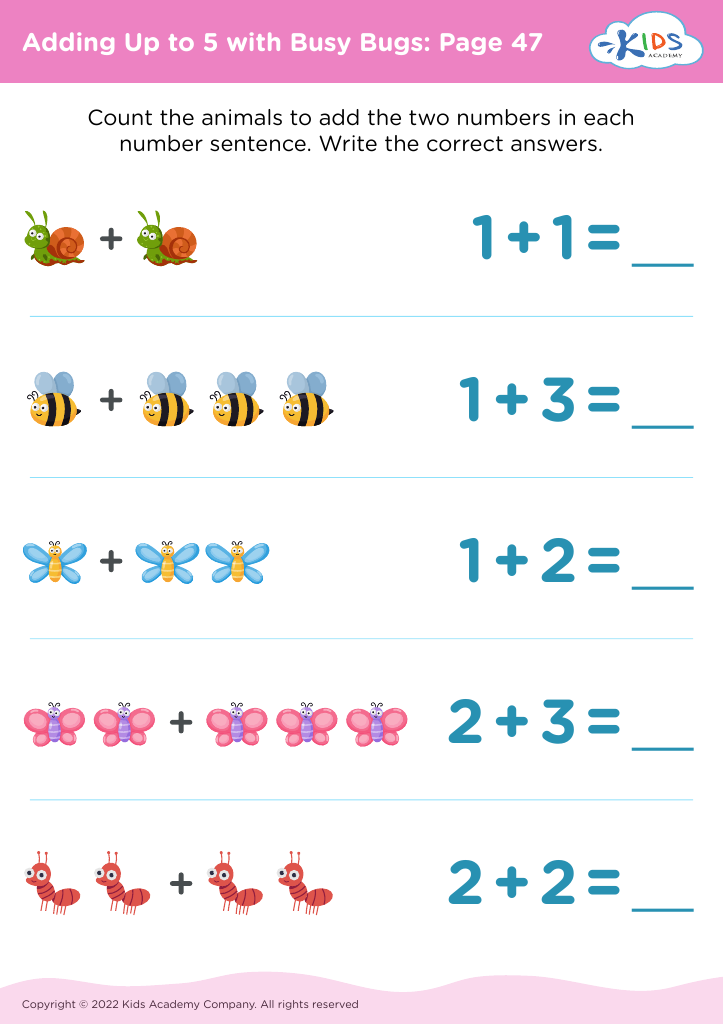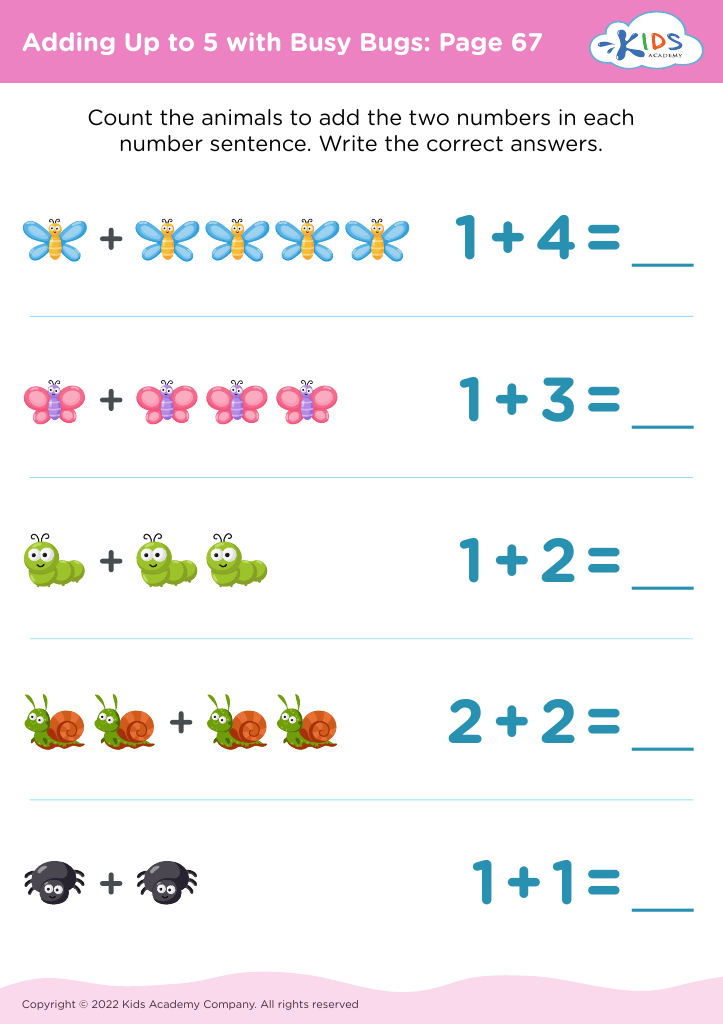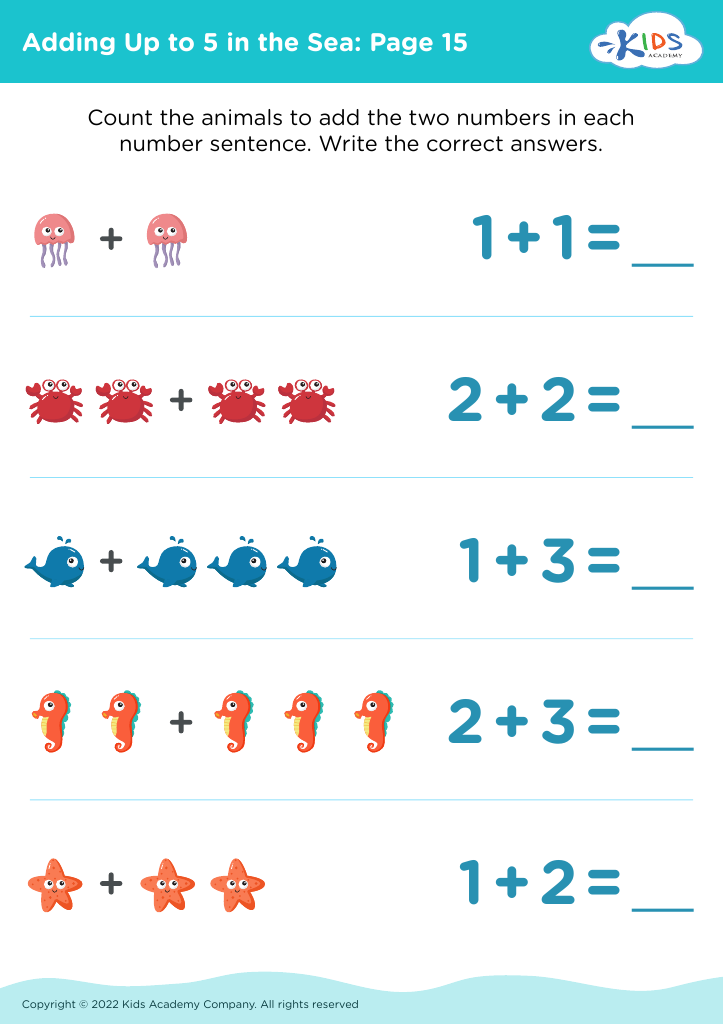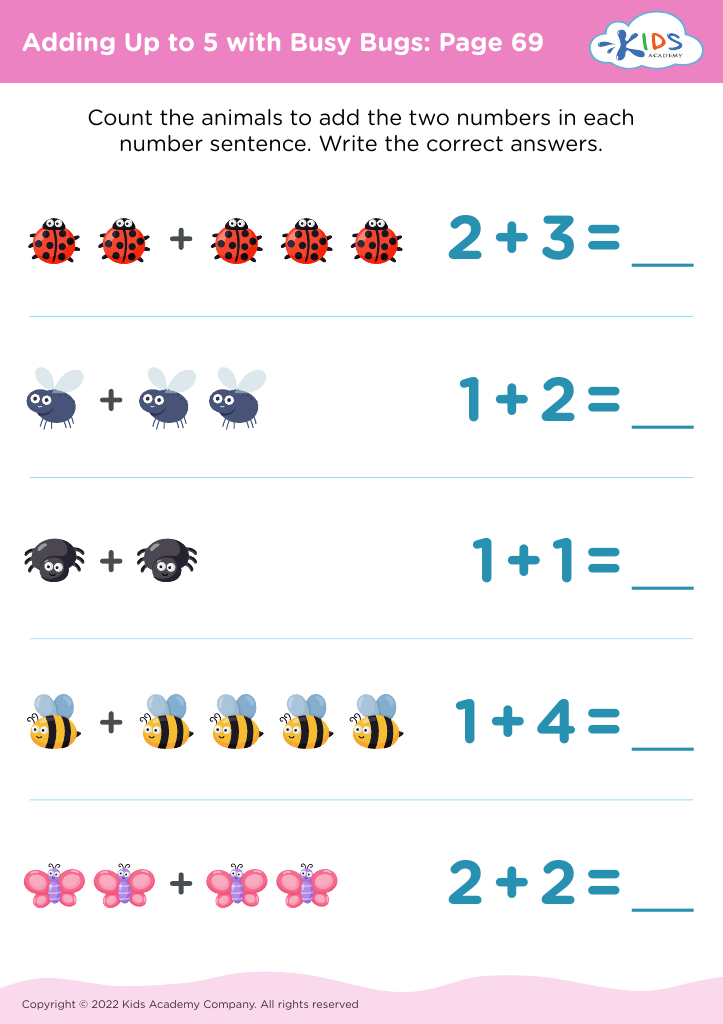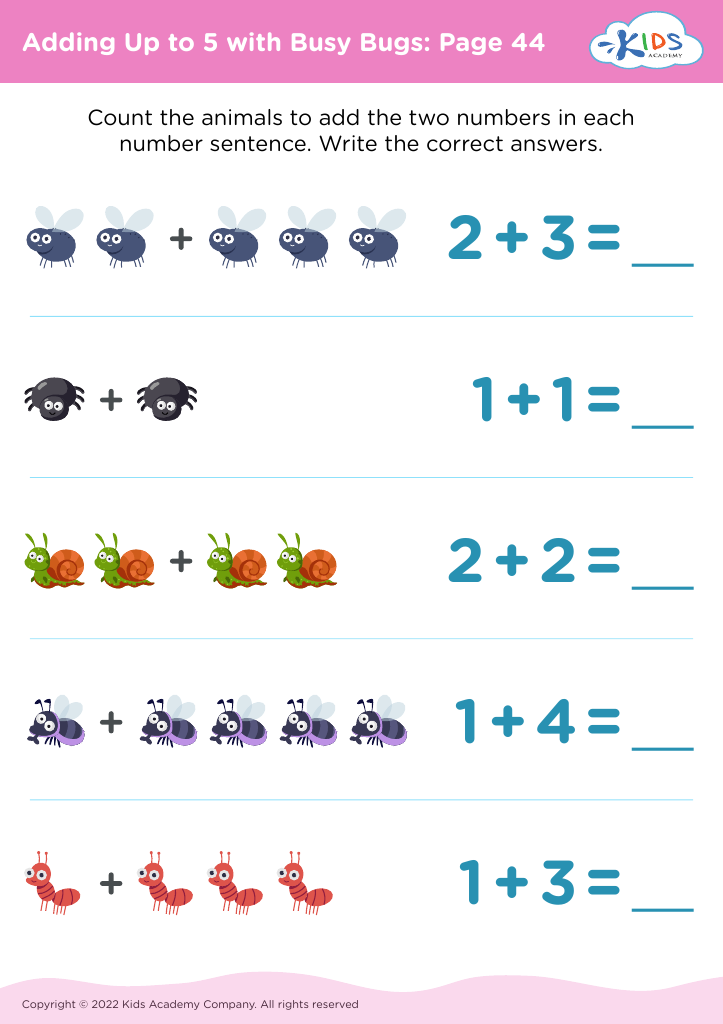Improving concentration Addition Worksheets for Ages 4-6
14 filtered results
-
From - To
Boost your child's concentration with our engaging "Improving Concentration Addition Worksheets" designed for ages 4-6. Tailored to promote focus and enhance arithmetic skills, these colorful and interactive worksheets provide fun exercises that captivate young learners. With a variety of addition problems, children can practice counting, number recognition, and simple calculations while developing their attention span. Ideal for home or classroom environments, our worksheets encourage independent learning and make practicing math enjoyable. Equip your preschooler with essential foundational skills in a rewarding way. Download now to help your child embark on an exciting educational journey filled with creativity and concentration!
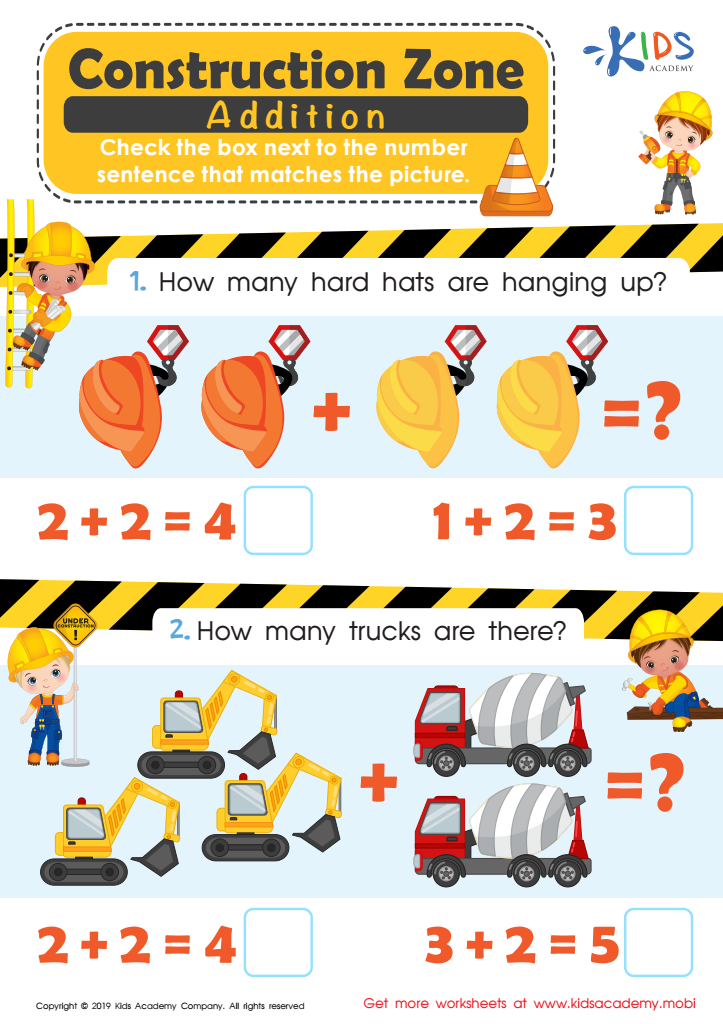

Construction Zone Addition Worksheet
Improving concentration in addition for children aged 4-6 is vital for various reasons. Firstly, at this age, children are developing foundational cognitive skills that will influence their learning throughout their school years and beyond. Concentration plays a crucial role in their ability to grasp mathematical concepts. If children can focus better, they are more likely to understand the significance of addition, recognize patterns, and solve basic problems confidently.
Moreover, enhancing a child’s concentration can lead to improved academic performance, not just in math but across all subjects. This builds a positive learning environment, leading to higher self-esteem and motivation to learn. Additionally, concentration exercises often promote patience, discipline, and perseverance—qualities that children will need throughout their lives.
Parents and teachers can implement engaging activities that foster attention, like interactive games and hands-on experiences, making learning fun. By prioritizing concentration in addition learning, we set the stage for lifelong skills, not only in mathematics but in critical thinking and problem solving. Therefore, investing in this developmental aspect is crucial, as it lays the groundwork for future academic success and instills a love for learning that can endure for years to come.
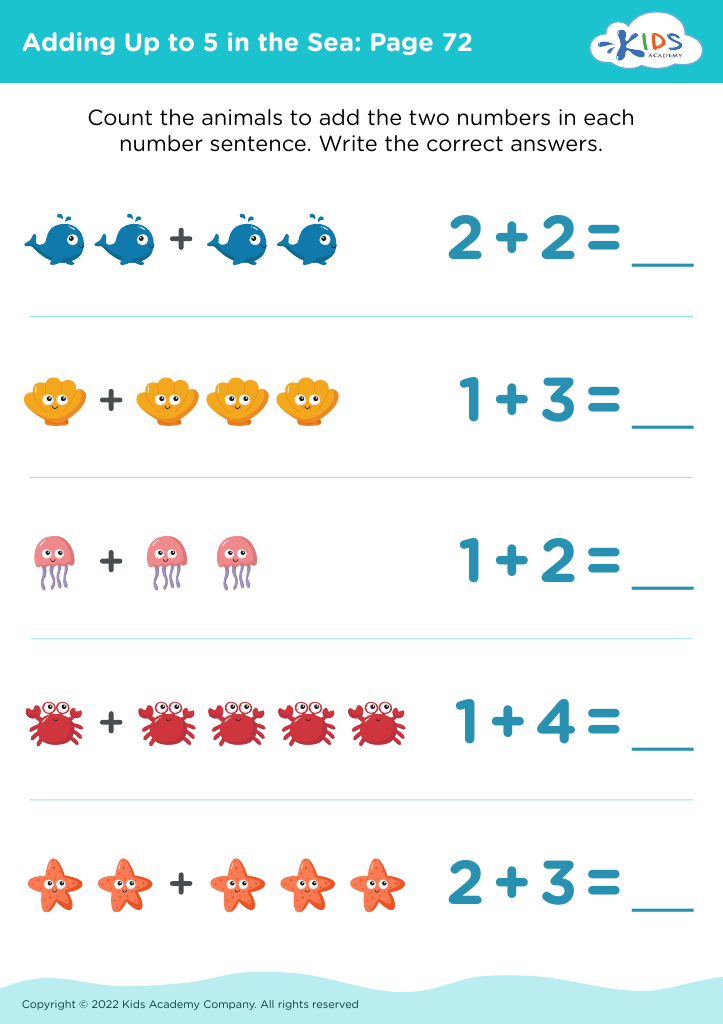
 Assign to My Students
Assign to My Students
